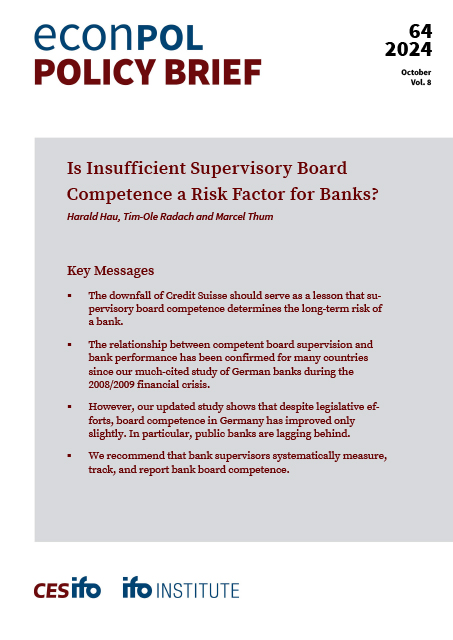Is Insufficient Supervisory Board Competence a Risk Factor for Banks?
Key Messages
- The downfall of Credit Suisse should serve as a lesson that supervisory board competence determines the long-term risk of a bank.
- The relationship between competent board supervision and bank performance has been confirmed for many countries since our much-cited study of German banks during the 2008/2009 financial crisis.
- However, our updated study shows that despite legislative efforts, board competence in Germany has improved only slightly. In particular, public banks are lagging behind.
- We recommend that bank supervisors systematically measure, track, and report bank board competence.
Abstract
The downfall of Credit Suisse should serve as a lesson that supervisory board competence determines the long-term risk of a bank. In a much-cited study, we investigated the relationship between competent board supervision and the performance of German banks during the 2008/2009 financial crisis. This policy brief summarizes the results of our updated study, which shows that despite legislative efforts, there is still a long way to go.
Series
Download
Download EconPol Policy Brief 64538.26 KB
Citation
Harald Hau, Tim-Ole Radach, Marcel Thum, “Is Insufficient Supervisory Board Competence a Risk Factor for Banks?,” EconPol Policy Brief 64, October 2024.
